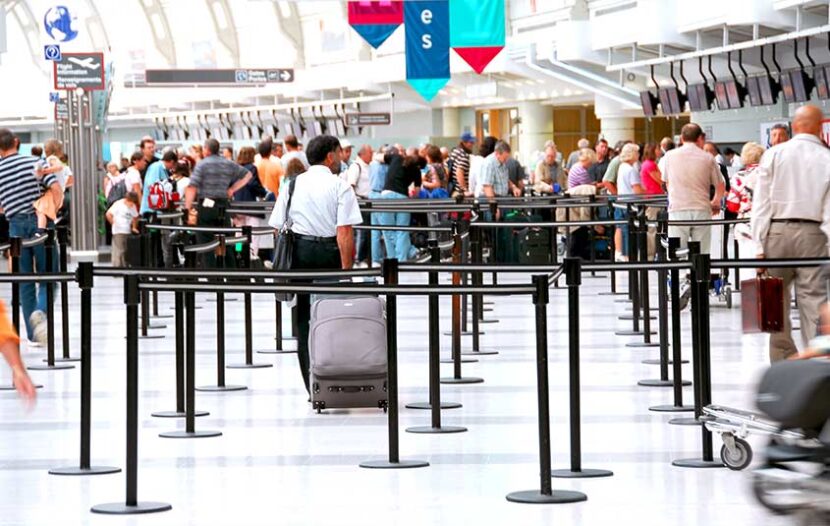TORONTO — The airport experience is improving not just for passengers at Pearson, but at Canada’s other major airports too.
New stats from the federal government for airports in Montreal, Vancouver and Calgary align with improving metrics supplied by GTAA CEO Deborah Flint last week, showing that screening times for passengers going through Canadian Air Transport Security Authority (CATSA) lines are getting better.
According to the latest update, from Aug. 1 – 3, 2022, nationally 86% of passengers were screened within 15 minutes by CATSA, an improvement from 84% the previous week.
The national average holds true for Pearson (86%), while Calgary (87%) and Montreal (89%) are even better. Vancouver International Airport came in at 84% for August 1-3.
On average more than 165,000 passengers departed from all of Canada’s airports each day from July 25-31. That’s up by 13,500 over the previous week.
And for arrivals, the daily average was slightly over 90,000 passengers arriving transborder or from overseas, an increase of almost 4,000 compared to the previous week.
Another bane of the airport traveller’s existence in recent months – aircraft holds on the tarmac – are down, another positive sign that things are finally stabilizing. The federal government says “the number of aircraft being held on the tarmac at Toronto Pearson International Airport has decreased dramatically since early May.” For the week of July 25-31, some 19 aircraft were held on the tarmac as compared to the peak of 373 the week of May 23- 29, 2022.
AIR CANADA & REFUNDS
The good news at Canada’s airports, including Pearson, comes as Canada’s flag carrier hits turbulence over refunds.
According to reports from wire service The Canadian Press and picked up in major consumer news outlets including the CBC, some Air Canada passengers are fuming after receiving communication that their request for refunds for cancelled flights have been denied.
At issue is whether or not a flight cancelled due to staff shortages, i.e. crew constraints, constitutes a safety-related issue, making the ticket for the cancelled flight ineligible for a refund. Canada’s Air Passenger Protection Regulations came into effect in 2019.
One passenger’s communication from Air Canada reads: “Since your Air Canada flight was delayed/cancelled due to crew constraints resulting from the impact of the COVID-19 pandemic on our operations, the compensation you are requesting does not apply because the delay/cancellation was caused by a safety-related issue.”
Canada’s passenger rights charter, the Air Passenger Protection Regulations (APPR), mandates airlines to pay up to $1,000 in compensation for cancellations or significant delays that stem from reasons within the carrier’s control when the notification comes 14 days or less before departure.
However, airlines do not have to pay if the change was required for safety purposes.
The Canadian Transportation Agency (CTA), a quasi-judicial federal body, says treating staff shortages as a safety matter violates federal rules. Last month the CTA launched new online tools as an info resource for travellers dealing with delays, cancellations and other issues.
“If a crew shortage is due to the actions or inactions of the carrier, the disruption will be considered within the carrier’s control for the purposes of the APPR. Therefore, a disruption caused by a crew shortage should not be considered ‘required for safety purposes’ when it is the carrier who caused the safety issue as a result of its own actions,” the CTA said in an email to The Canadian Press.
In a December 2021 memo, which was issued at the height of the omicron wave of COVID-19, Air Canada said: “Effective immediately, flight cancellations due to crew are considered as Within Carrier Control – For Safety. Customers impacted by these flight cancellations will still be eligible for the standard of treatments such as hotel accommodations, meals etc. but will no longer be eligible for APPR claims/monetary compensation.”
The staff directive said the stance would be “temporary.” But Air Canada acknowledged on July 25, 2022 that the policy “remains in place given the continued exceptional circumstances brought on by COVID variants.”
With file from The Canadian Press

